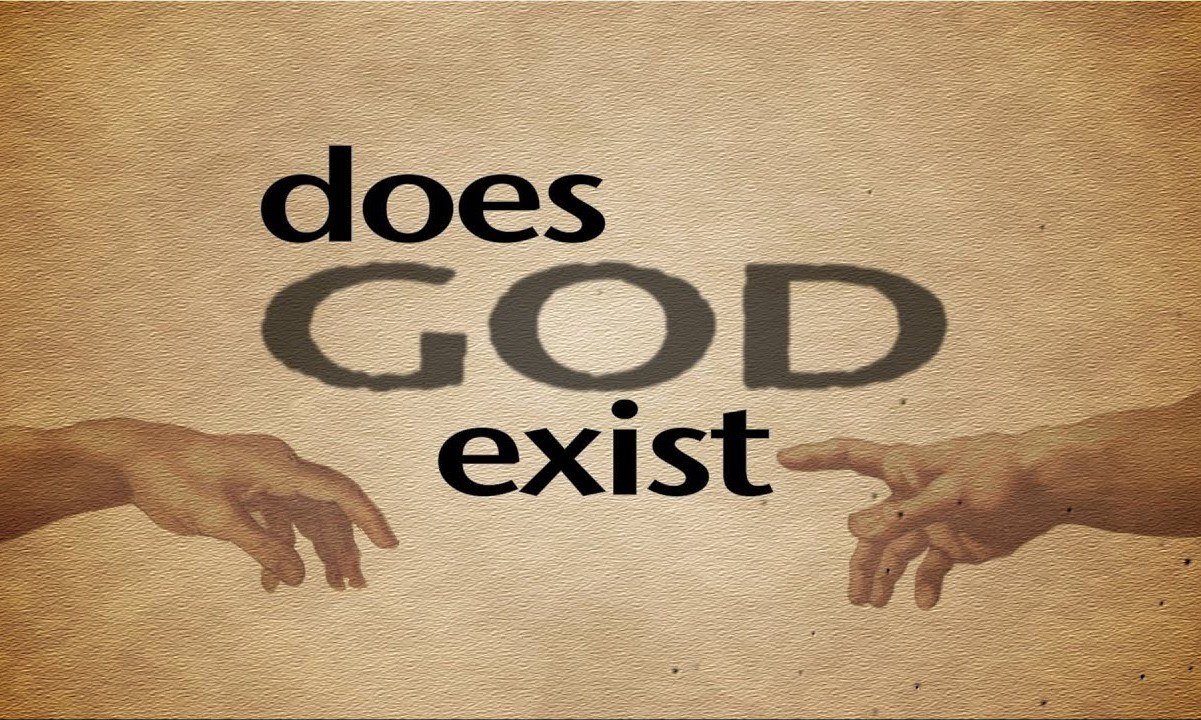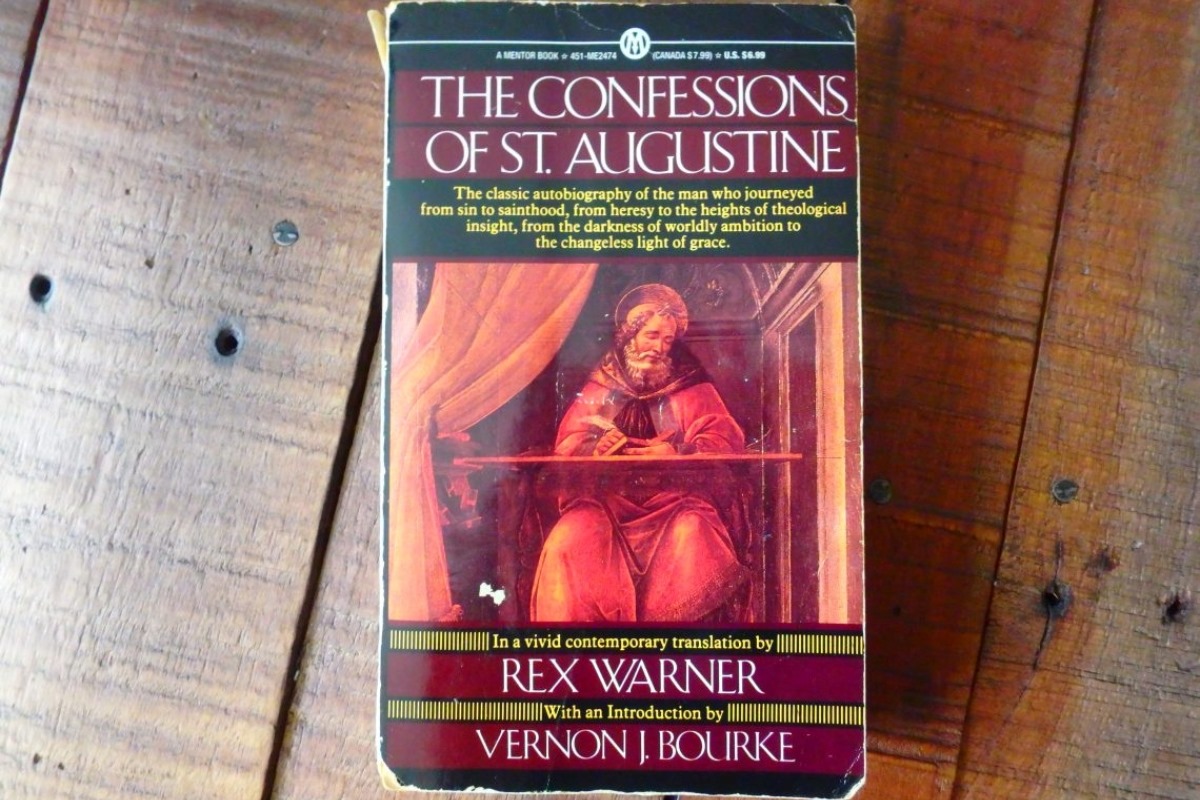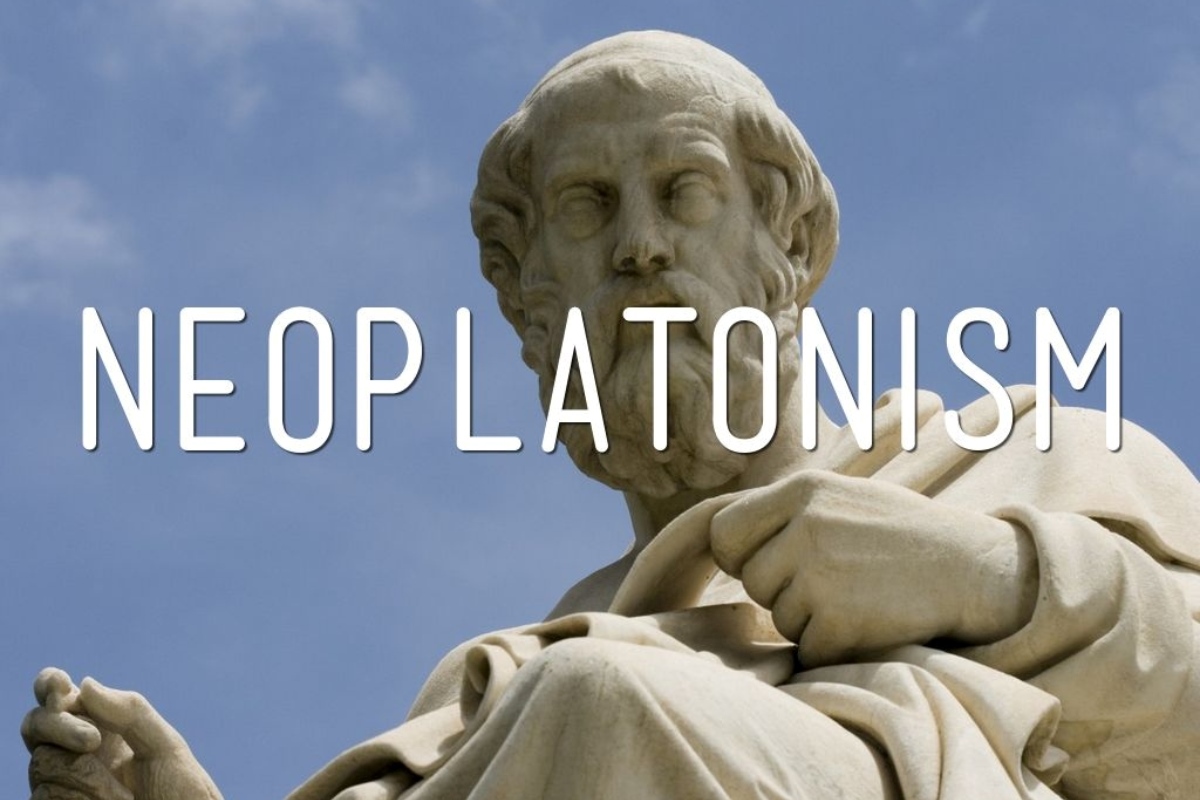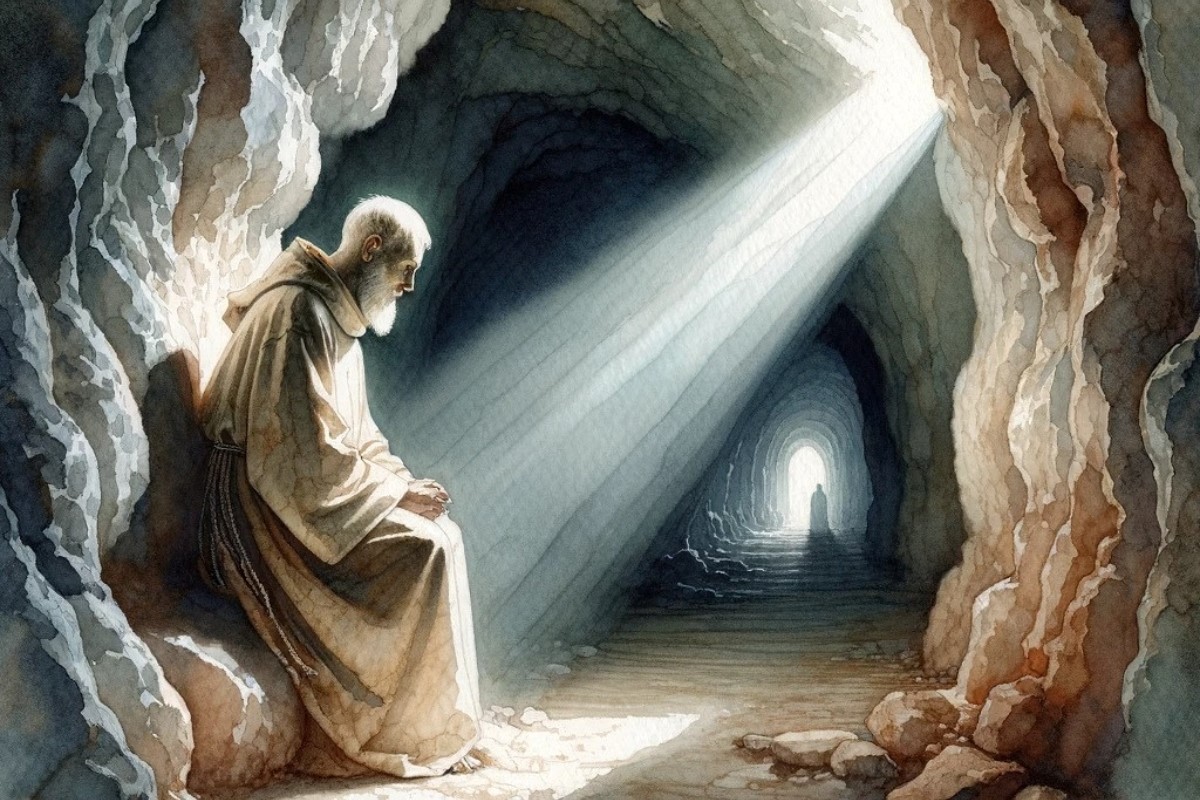Home>Theology and Spirituality>How Does Augustine Argue For The Existence Of God


Theology and Spirituality
How Does Augustine Argue For The Existence Of God
Published: February 10, 2024
Peter Smith, Editorial Director at Christian.net, combines deep insights into faith, politics, and culture to lead content creation that resonates widely. Awarded for his contributions to religious discourse, he previously headed a major organization for religious communicators, enhancing dialogue on faith's societal impacts.
Discover Augustine's compelling arguments for the existence of God in this insightful exploration of theology and spirituality. Explore his thought-provoking perspectives today.
(Many of the links in this article redirect to a specific reviewed product. Your purchase of these products through affiliate links helps to generate commission for Christian.net, at no extra cost. Learn more)
Table of Contents
Introduction
Augustine of Hippo, also known as Saint Augustine, was a pivotal figure in the development of Christian theology. His profound influence on Western thought and spirituality is evident in his numerous writings, particularly his magnum opus, "The City of God," and "Confessions." Augustine's intellectual prowess and spiritual depth continue to inspire theologians, philosophers, and seekers of truth.
In this article, we will delve into Augustine's compelling arguments for the existence of God. His philosophical insights and theological acumen provide a rich tapestry of reasoning that has resonated through the centuries. By exploring Augustine's perspectives on truth, beauty, the human soul, and the existence of evil, we can gain a deeper understanding of his profound contributions to the discourse on the existence of God.
As we embark on this exploration, it is essential to approach Augustine's arguments with an open mind and a willingness to engage with the complexities of his thought. His writings are not only intellectually stimulating but also spiritually enriching, offering profound insights into the nature of reality and the human quest for meaning. Through the lens of Augustine's philosophical and theological reflections, we can discern the enduring relevance of his arguments and their implications for contemporary discussions on faith, reason, and the transcendent.
Read more: What Did Augustine Argue In The City Of God
Augustine's Background and Influence
Augustine of Hippo, born in 354 AD in the Roman province of Numidia (present-day Algeria), was a towering figure in the early Christian church. His intellectual journey traversed the realms of philosophy, rhetoric, and ultimately, theology, leaving an indelible mark on Western thought. Augustine's early life was marked by a quest for knowledge and meaning, leading him through various philosophical schools, including Manichaeism and Neoplatonism, before his conversion to Christianity.
The influence of Augustine's background is evident in his philosophical and theological works. His immersion in the intellectual currents of his time, coupled with his profound spiritual experiences, shaped his approach to understanding the nature of God and the human condition. Augustine's encounters with influential thinkers, such as Ambrose of Milan, further enriched his intellectual development and theological insights.
As a prolific writer and influential bishop, Augustine's impact extended beyond his immediate milieu. His writings continue to shape Christian theology and spirituality, addressing fundamental questions about the nature of God, the problem of evil, and the human quest for transcendence. Augustine's emphasis on the primacy of divine grace, the complexities of human nature, and the pursuit of wisdom has resonated across centuries, inspiring theologians, philosophers, and seekers alike.
Moreover, Augustine's profound influence on the development of Christian doctrine, particularly in the areas of original sin, divine sovereignty, and the nature of the Trinity, underscores the enduring significance of his contributions. His theological legacy continues to inform theological discourse and remains a vital source of inspiration for those grappling with the intersection of faith, reason, and the human experience.
In summary, Augustine's background and influence are integral to understanding the depth and breadth of his contributions to Christian thought. His intellectual journey, spiritual encounters, and engagement with the philosophical currents of his time converge in his writings, offering profound insights into the nature of God, the human condition, and the quest for ultimate truth. Augustine's enduring influence serves as a testament to the enduring relevance of his theological and philosophical legacy.
Augustine's Argument from Truth
Augustine's argument from truth constitutes a foundational pillar of his philosophical and theological framework. Central to this argument is the notion that truth, as an immutable and transcendent reality, points towards the existence of God. Augustine posits that truth possesses an inherent stability and coherence that reflects the divine order of the universe. In his seminal work, "Confessions," Augustine grapples with the nature of truth and its profound implications for understanding the nature of reality and the human quest for meaning.
At the heart of Augustine's argument lies the conviction that truth is not merely a conceptual abstraction but a reflection of the eternal and unchanging nature of God. He contends that the human capacity to apprehend truth, to discern the difference between falsehood and veracity, is rooted in the divine imprint upon the human intellect. Augustine's theological anthropology underscores the inherent orientation of the human intellect towards truth, mirroring the divine intellect from which it emanates.
Furthermore, Augustine's exploration of truth extends beyond epistemological inquiries to encompass the moral and existential dimensions of human existence. He elucidates the profound connection between truth and the moral order, emphasizing the intrinsic link between truth and goodness. For Augustine, the pursuit of truth is inseparable from the pursuit of virtue, as both converge in the ultimate reality of God.
In light of Augustine's argument from truth, the quest for knowledge and understanding becomes intertwined with the quest for God Himself. The human longing for truth, the innate yearning to grasp the fundamental principles that govern existence, finds its fulfillment in the apprehension of divine truth. Augustine's profound insights into the nature of truth as a reflection of the divine order resonate with contemporary discussions on the relationship between faith and reason, affirming the enduring relevance of his philosophical and theological contributions.
In summary, Augustine's argument from truth offers a compelling perspective on the intrinsic connection between truth and the existence of God. His profound reflections on the nature of truth as a reflection of divine reality invite contemplation on the profound implications of truth for human existence and the pursuit of ultimate meaning. Augustine's insights continue to inspire philosophical and theological inquiries, underscoring the enduring significance of his argument from truth in the discourse on the existence of God.
Augustine's Argument from Beauty
Augustine's exploration of beauty as an avenue to apprehend the existence of God unveils profound insights into the transcendent nature of aesthetic experiences. Central to Augustine's argument is the conviction that beauty, as manifested in the created order, serves as a reflection of the divine beauty inherent in God. His reflections on beauty, particularly in "Confessions," illuminate the profound interplay between the human perception of beauty and its inherent connection to the ultimate source of beauty, namely, God Himself.
For Augustine, the experience of beauty transcends mere sensory perception; it beckons the human soul towards the contemplation of the divine. He contends that the allure of beauty, whether encountered in the natural world, artistic expressions, or the moral virtues of individuals, points towards a higher reality that transcends the material realm. Augustine's theological aesthetics emphasize the transformative power of beauty, evoking a longing for the transcendent and the eternal.
Moreover, Augustine's argument from beauty intertwines with his broader theological framework, underscoring the interconnectedness of the created order with its divine origin. The harmony, symmetry, and proportionality inherent in beautiful phenomena reflect the divine order that permeates the cosmos. Augustine's profound reflections on beauty invite contemplation on the intrinsic link between aesthetic experiences and the human yearning for the divine.
In light of Augustine's argument from beauty, the human encounter with beauty becomes a pathway to encounter the divine presence. The aesthetic experiences that evoke wonder, awe, and a sense of transcendence serve as glimpses of the ultimate beauty that finds its source in God. Augustine's insights into the transformative power of beauty resonate with contemporary discussions on the role of aesthetics in spiritual experiences, affirming the enduring relevance of his argument from beauty in the discourse on the existence of God.
In summary, Augustine's argument from beauty offers a profound perspective on the transcendent nature of aesthetic experiences and their implications for understanding the existence of God. His reflections on beauty as a reflection of divine beauty invite contemplation on the profound connections between human experiences of beauty and the ultimate reality of God. Augustine's insights continue to inspire philosophical and theological inquiries, underscoring the enduring significance of his argument from beauty in the discourse on the existence of God.
Augustine's Argument from the Human Soul
Augustine's argument from the human soul constitutes a profound exploration of the nature of the human psyche and its intrinsic orientation towards the divine. Central to Augustine's theological anthropology is the conviction that the human soul, endowed with rationality and moral agency, reflects the imprint of its Creator. In his seminal work, "Confessions," Augustine delves into the complexities of the human soul, unraveling its yearning for transcendence and its inherent capacity to seek ultimate truth and goodness.
At the heart of Augustine's argument lies the recognition of the human soul as a locus of profound significance in the quest for God. He contends that the human intellect, endowed with the capacity for rational inquiry and moral discernment, reflects the divine intellect from which it emanates. Augustine's theological anthropology underscores the intrinsic orientation of the human soul towards the divine, emphasizing its innate longing for communion with God.
Furthermore, Augustine's exploration of the human soul extends beyond philosophical inquiries to encompass the moral and existential dimensions of human existence. He elucidates the profound connection between the human soul and its quest for ultimate fulfillment, emphasizing the intrinsic link between the human longing for transcendence and the divine reality towards which it aspires. Augustine's theological anthropology invites contemplation on the profound implications of the human soul as a reflection of its Creator, imbued with the capacity to seek and apprehend the divine.
In light of Augustine's argument from the human soul, the human quest for meaning and transcendence becomes intertwined with the quest for God Himself. The inherent yearning of the human soul for ultimate truth and goodness finds its fulfillment in the apprehension of the divine reality. Augustine's profound insights into the nature of the human soul as oriented towards the divine resonate with contemporary discussions on the relationship between human nature and the transcendent, affirming the enduring relevance of his theological anthropology in the discourse on the existence of God.
In summary, Augustine's argument from the human soul offers a profound perspective on the intrinsic orientation of the human psyche towards the divine. His reflections on the human soul as a reflection of its Creator invite contemplation on the profound implications of the human quest for transcendence and its implications for understanding the existence of God. Augustine's insights continue to inspire philosophical and theological inquiries, underscoring the enduring significance of his argument from the human soul in the discourse on the existence of God.
Read more: How Does Augustine Define Evil
Augustine's Argument from the Existence of Evil
Augustine's exploration of the existence of evil represents a profound engagement with the perennial question of theodicy, seeking to reconcile the presence of evil and suffering with the existence of a benevolent and omnipotent God. Central to Augustine's theological framework is the recognition of evil as a privation or distortion of the good, rather than a substantive reality in itself. In his seminal work, "The City of God," Augustine grapples with the complexities of evil, its origins, and its implications for understanding the nature of God and the human condition.
At the heart of Augustine's argument lies the conviction that evil, understood as the absence of goodness or the perversion of the created order, does not negate the existence of a perfect and benevolent God. He contends that God, as the ultimate source of goodness and perfection, cannot be held accountable for the existence of evil, which arises from the misuse of free will and the distortion of the inherent goodness of creation. Augustine's profound insights into the nature of evil as a privation of the good invite contemplation on the complexities of moral agency and the consequences of human choices.
Furthermore, Augustine's exploration of the existence of evil intertwines with his broader theological reflections, underscoring the interconnectedness of human freedom with the moral landscape of the world. He elucidates the profound implications of moral agency and the consequences of human actions, emphasizing the intrinsic link between the existence of evil and the exercise of free will. Augustine's theodicy invites contemplation on the complexities of human responsibility and the implications of moral choices in a world marked by the presence of evil and suffering.
In light of Augustine's argument from the existence of evil, the human experience of moral agency and the consequences of free will become intertwined with the broader theological narrative of redemption and divine grace. The recognition of evil as a distortion of the good underscores the transformative power of God's redemptive work, offering hope amidst the complexities of human frailty and moral failure. Augustine's profound insights into the nature of evil and its implications for understanding the divine-human relationship resonate with contemporary discussions on theodicy, affirming the enduring relevance of his theological reflections in the discourse on the existence of God.
In summary, Augustine's argument from the existence of evil offers a profound perspective on the complexities of moral agency, human freedom, and the implications of evil in the created order. His reflections on the nature of evil as a privation of the good invite contemplation on the profound implications of human choices and the transformative power of divine grace in the face of moral frailty. Augustine's insights continue to inspire philosophical and theological inquiries, underscoring the enduring significance of his argument from the existence of evil in the discourse on the existence of God.
Conclusion
In conclusion, Augustine's profound arguments for the existence of God offer a rich tapestry of philosophical and theological insights that continue to resonate with contemporary seekers of truth. His exploration of truth, beauty, the human soul, and the existence of evil unveils profound connections between the human quest for meaning and the transcendent reality of God. Augustine's emphasis on the intrinsic orientation of the human intellect and soul towards the divine underscores the enduring relevance of his theological anthropology in the discourse on the existence of God.
Through Augustine's argument from truth, we are invited to contemplate the profound implications of truth as a reflection of divine reality. The human quest for knowledge and understanding becomes intertwined with the quest for God Himself, affirming the inseparable link between the pursuit of truth and the apprehension of the divine.
Moreover, Augustine's argument from beauty illuminates the transcendent nature of aesthetic experiences and their implications for understanding the existence of God. The transformative power of beauty, as a reflection of divine beauty, beckons the human soul towards the contemplation of the ultimate source of beauty, namely, God Himself.
Furthermore, Augustine's exploration of the human soul as a reflection of its Creator invites contemplation on the profound implications of the human quest for transcendence. The inherent yearning of the human soul for ultimate truth and goodness finds its fulfillment in the apprehension of the divine reality, underscoring the profound connections between human experiences and the ultimate reality of God.
Lastly, Augustine's argument from the existence of evil offers profound insights into the complexities of moral agency, human freedom, and the transformative power of divine grace. The recognition of evil as a distortion of the good underscores the redemptive work of God, offering hope amidst the complexities of human frailty and moral failure.
In essence, Augustine's arguments for the existence of God serve as a testament to the enduring significance of his theological and philosophical legacy. His profound reflections continue to inspire philosophical and theological inquiries, affirming the enduring relevance of his insights in the discourse on the existence of God. As we engage with Augustine's arguments, we are invited to embark on a journey of contemplation and discovery, delving into the profound mysteries of existence and the human longing for transcendence.














